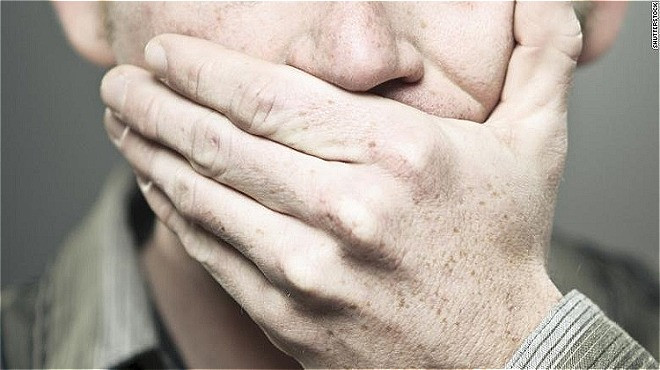10 Causes and Remedies for Bad Breath
Bad breath can be a sign of health problems such as diabetes, kidney failure, cirrhosis.
According to research by the Academy of General Dentistry, more than 80 million people worldwide suffer from bad breath, a sign of health problems.
|
Photo: According toCNN |
The following are common causes of bad breath,o CNN.
Poor dental care
This is the number one cause of bad breath. When food gets stuck between your teeth and gums, bacteria will enter, causing a rotten egg smell. You should floss first. If there is a bad smell, it means you have bad breath.
Be diligent about brushing and flossing regularly. When brushing, clean your tongue and cheeks to clean your mouth and kill bacteria. "Mouthwash and chewing gum only temporarily mask bad breath, not provide a long-term solution," says the dentist.
Eat and drink food with odors
Coffee, garlic, fish, eggs, onions, and spicy foods are all foods that cause bad breath. The smell will linger in your mouth even after you brush your teeth. According to the Academy of General Dentistry, the allyl methyl sulfide in coffee, onions, and garlic can stay in your bloodstream for up to 72 hours after consumption.
You should eat other foods such as lemon, parsley and crunchy vegetables like apples or carrots to stimulate saliva production and wash away impurities. You should also drink plenty of water to limit odor.
Sweets
Sugar is very bad for your teeth. Eating too much causes bacteria in your mouth, which causes bad breath. Especially sticky candies. Eat candies that have less sugar and dissolve faster in your mouth.
Diet
Eating a lot of protein and few carbs will cause your body to burn fat for energy. Then the waste is excreted through urine and your breath causes odor.
Therefore, when you are on a diet, you need to drink more water to help waste quickly leave your body. You can eat mints or sugar-free gum to soothe your bad breath.
Night Breathing
At night, saliva production decreases, which is why many people wake up with bad breath and mouth odor, even those who brush and floss regularly. Breathing or snoring dries out your mouth, causing discomfort and bad odor. You may experience a sore throat, hoarseness, difficulty speaking and swallowing, and even a change in your sense of taste.
At that time, you should persevere to drink more water and maintain oral hygiene both morning and night. In addition, you should also check your teeth regularly to determine the main cause to fix it.
Take medicines
Hundreds of medications can dry out your mouth and cause bad breath, such as those used to treat stress, depression, high blood pressure, pain, and muscle tension. Therefore, you should check the ingredients and side effects of the medication and consult your doctor to protect your health.
Stuffy nose or allergies
When you have a respiratory disease, chronic sinusitis is also a cause of bad breath. When your nose is blocked, you are more likely to breathe through your mouth, drying out the tissues and reducing the flow of saliva. Therefore, you should also see a dentist for appropriate treatment advice.
Cigarette
The smell of tobacco often clings to clothing and furniture. Cigarette smoke also dulls the senses, reducing the ability to smell and taste. Smoking causes loss of saliva, which in turn worsens bad breath. There is no other solution but to quit smoking and practice good oral hygiene.
Alcohol
Alcohol and beer are drinks that dry out your mouth, especially those containing sugar, which are also an environment for bacteria to form. You can eat sugar-free candy or chew sugar-free gum to stimulate saliva production. In addition, don't forget to drink water, take care of your teeth and floss regularly.
Health problems
Do you have heartburn, acid reflux or gastroesophageal reflux disease that can also cause bad breath? Bad breath can also be an early sign of an underlying disease such as diabetes, kidney failure, cirrhosis.
Therefore, you should regularly go to the dentist to detect early and give the best treatment for your body.



